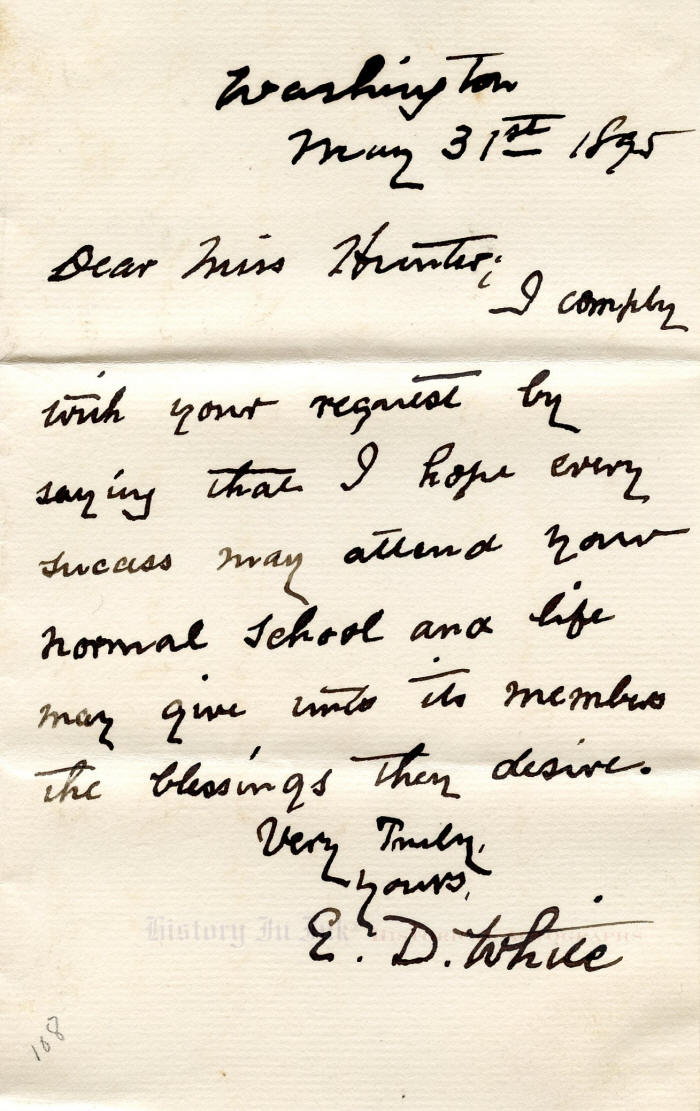
1007317
Edward D. White
Scarce handwritten letter by Justice White replying to a student
Edward Douglass White, 1845–1921. Associate Justice, United States Supreme Court, 1894–1910; Chief Justice of the United States, 1910–1921. Scarce Autograph Letter Signed, E. D. White, one page, 4¼” x 7”, with integral leaf attached, Washington, [D.C.], May 31, 1895.
Responding to a request from a student at the State Normal School at Emporia, Kansas, now Emporia State University, for a handwritten letter containing a reminiscence, a favorite sentiment, or a word of advice for one of several autograph albums to be devoted to the country’s prominent men and women, White writes: “I comply with your request by saying that I hope every success may attend your Normal School and life may give unto its members the blessings they desire.”
White served as a judge of the Louisiana Supreme Court and later as a United States Senator. He spoke fluent French.
His appointment to the United States Supreme Court was a surprise. President Grover Cleveland had tried to appoint two New Yorkers. But the New York senators, who opposed Cleveland, invoked senatorial courtesy to defeat both appointments. Cleveland then turned to White, knowing the Senate would never refuse to confirm one of its own. During the debate on a controversial tariff bill, Cleveland summoned White to the White House and offered him the appointment.
White was the first person promoted directly from Associate Justice to Chief Justice. President Cleveland appointed him to the Supreme Court in 1894. When Chief Justice Melville W. Fuller died in 1910, President William Howard Taft elevated White, then age 65, to Chief Justice. White was confirmed the same day that he was nominated. Taft, who desperately wanted to be Chief Justice himself, later succeeded White following White’s death in 1921.
White generally supported the rights of the states against federal intervention. He did, however, vote to uphold the federal government’s power to impose an income tax, dissenting from the Court’s ruling declaring it unconstitutional—a decision that led to the Sixteenth Amendment in 1913. He also supported the federal government’s power to draft soldiers when the United States entered World War I. Although he was a former Confederate soldier, he secured a unanimous ruling to strike down “grandfather clauses” that, in violation of the Fifteenth Amendment, kept many African-Americans from voting.
White, whose autographic material is scarce, has boldly penned this letter in jet black ink. The letter is bright, with just a bit of toning in a couple of places. It has normal mailing folds, a collector’s pencil notation in the blank lower left corner, and mounting traces on the back of the integral leaf from prior mounting in an album. The corners of the integral leaf have been tipped to the front leaf. Overall, the letter is in fine condition. It is an outstanding example of White’s holograph.
Unframed.
_____________
This item has been sold.
Click here to see other Supreme Court items
that we are offering.



